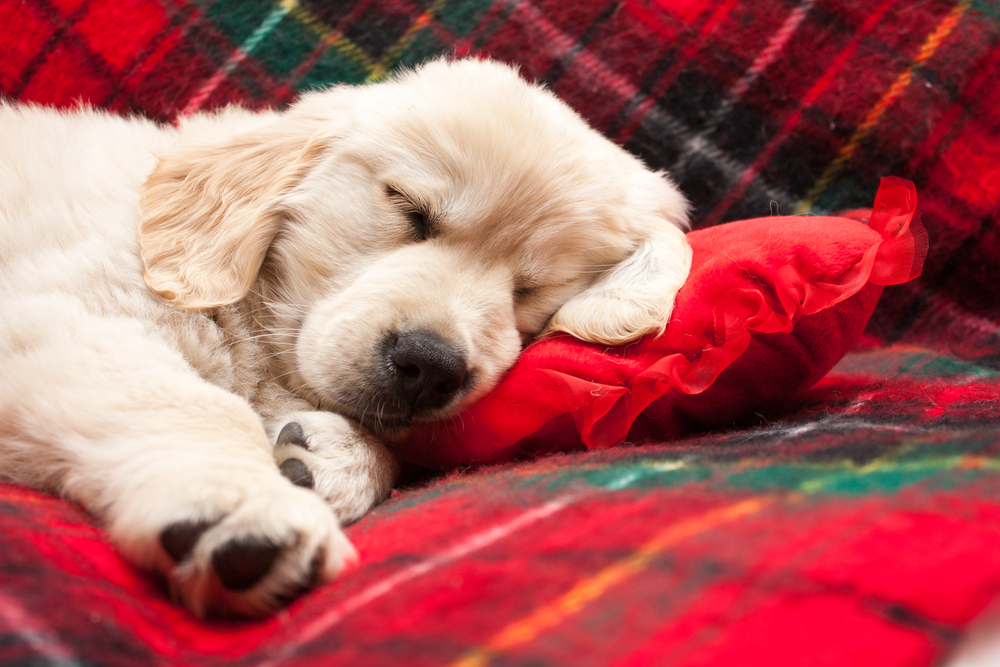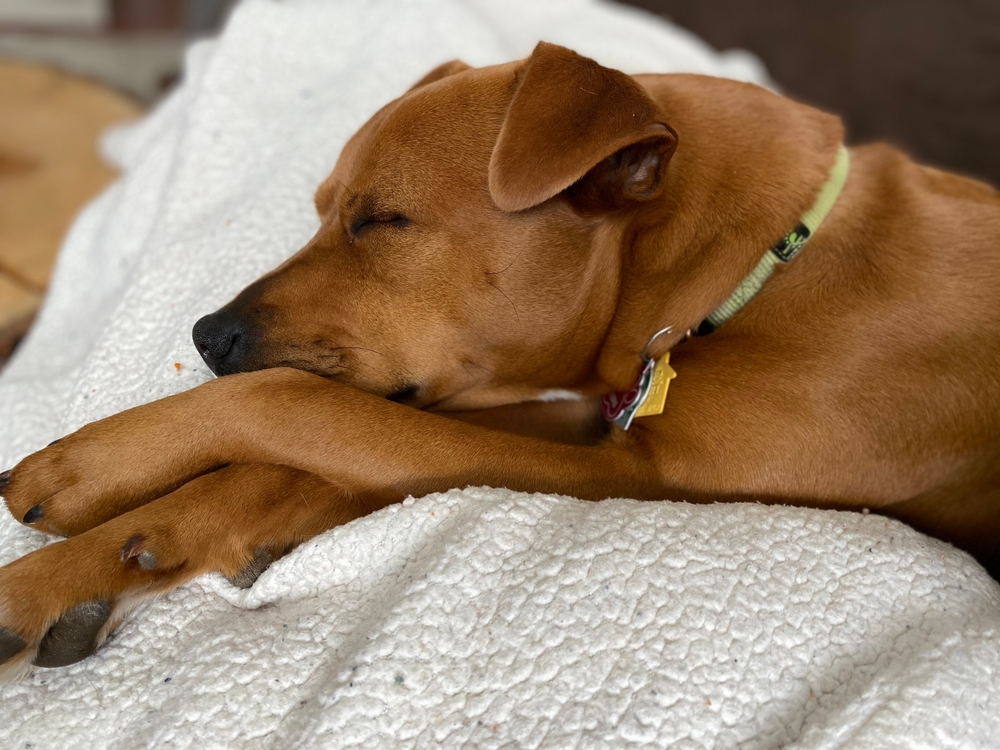Original Article: https://www.dogster.com/lifestyle/how-do-dogs-fall-asleep-so-fast
Click to Skip Ahead
Dogs have a plethora of skills and talents, but their ability to fall asleep in seconds flat is truly jealousy-inducing. How is it that your pup can nod off into slumber the moment their bodies settle in for a nap?
Their unique sleep cycles and lifestyle factors can influence how quickly dogs can fall asleep. Read on to learn more.


How Do Dogs Fall Asleep So Fast?
1. Unique Sleep Cycles
Dogs sleep a lot, but their sleep cycles are different from ours. They don’t typically crawl into bed for the night at 10 pm and stay asleep until 8 a.m. like we do. Instead, their sleep hours are spread throughout the day in shorter intervals, and as such, they naturally spend a shorter amount of time in rapid eye movement (REM) sleep.
This fragmented sleep pattern may be partly why they’re able to fall asleep in record time. While they may fall asleep fast, they typically sleep much lighter than we do.

2. An Exhausting Day
Dogs are very active animals, so it only makes sense that by the time they go for a nap, their bodies are exhausted and ready to catch some ZZs. Dogs need to be able to recharge their batteries quickly, so they’ve evolved to fall asleep fast so they can wake up and perform immediately.
Have you ever noticed that your dog is game for pretty much anything at any time of the day? If you ask them if they want to go for a walk at 1 a.m., they’ll be ready and raring to go. This is due to their natural ability to wake up and instantly be prepared to perform.
3. An Unburdened Lifestyle
When we go to sleep at night, we’re burdened with the thoughts of our human egos. We think about what we have to do the next day, the piles of work we have waiting for us at the office, upcoming trips, our health, and other things that weigh heavily on us.
Dogs don’t lie in bed and think about the logistics of life. They don’t worry about how they’ll run the kids to their extracurricular activities while also juggling the demands of their boss and keeping up with the housework.



A Dog’s Sleep Pattern
While dogs’ sleep patterns are similar to humans, there are some key differences. Let’s examine the two primary canine sleep cycles.
Stage One
When they first fall asleep, dogs enter slow-wave sleep (SWS), which is sometimes also called non-rapid eye movement (NREM) sleep. During this phase, electrical brain activity changes as the body relaxes into restorative rest.
You’ll know your pup is in SWS when they’re breathing deeply and rhythmically. This is a light sleep, and your pet will wake easily if there are unexpected sounds.
Stage Two
Stage two, also known as rapid eye movement (REM), is a deeper sleep that generally occurs after ten minutes of NREM.
You’ll know your pup has entered REM when they’re twitching, whining, or barking lightly. This is a deeper sleep, and it will be harder to wake up your pup while they’re in this stage.
Due to their interrupted sleep pattern, dogs typically only spend around 10% of their sleeping time in REM. By contrast, humans spend 20 to 25% of their sleep in this phase.

Why Do Dogs Sleep So Much?
While all pups need a lot of sleep, this is especially true when they’re puppies. Young pups expend an immeasurable amount of energy growing and exploring their new and exciting world and may sleep up to 20 hours daily until they’re around 3 months old.
Adult dogs don’t always have quite the same exuberance for exploration, but they’ll still sleep anywhere between 10 and 16 hours per day. Senior dogs, much like their human counterparts, may revert to a puppy-like sleep schedule as they age.
However, dogs don’t log all their ZZs in one go like we do. They spread their sleep hours throughout the day, napping here and there whenever they have time or see fit. Therefore, dogs make up for receiving less REM sleep and increased interruptions by sleeping more.


Final Thoughts
Dogs can fall asleep faster than you due to their natural sleep cycles, active lifestyle, and unburdened existence. You may toss and turn all night because you’re thinking about paying bills and meeting work deadlines while your pup happily nods off at the drop of a hat.
Try not to be too envious of your dog’s ability to fall asleep quickly, though. While they may drift off into dreamland faster than you, the quality of their sleep will be less than yours.
Featured Image Credit: mykeyruna, Shutterstock
Source: Dogster












